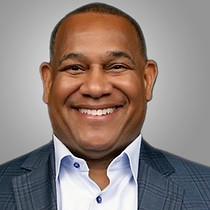
Our Impact
Golden State Foods’ commitment to doing what’s right
for future generations embodies our responsibility and
promise to conscientiously facilitate the prosperity of
associates, customers, partners, communities,
and the environment.




"Our vision focuses on maintaining the highest standards of social responsibility and implementing ESG initiatives throughout our global businesses. Integrating sustainability goals and other ESG priorities into our everyday best practices, all of our functional support groups and operational business units contribute to advancing GSF’s progress."
– Brian Dick, GSF President and Chief Executive Officer
Sustainability Goals by 2030
Addressing today’s most urgent environmental challenges requires a proactive approach to minimizing our ecological footprint. We are committed to measurable progress through ambitious goals focused on reducing greenhouse gas emissions, conserving water, and minimizing waste.
A. From a 2023 baseline year. B. FLAG vs Non-FLAG: To align with the Science Based Targets initiative (SBTi), our Scope 3 emissions are divided into FLAG (Forest, Land, and Agriculture) and non-FLAG categories. FLAG covers emissions from the land use and land management phases of a commodity, as well as carbon removals. Non-FLAG covers emissions from the processing or transportation of a commodity. This distinction supports more targeted strategies for reducing emissions across our value chain. C. From a 2018 baseline year.

“Our pursuit of positive impact is accelerating, guided by deeper engagement with stakeholders and meaningful community initiatives. Through these actions, we are strengthening responsible business practices, advancing sustainability, and demonstrating inspiring momentum toward long-term goals and collective progress.”
– John Page, GSF Corporate Executive Vice President and Chief Administrative Officer
Climate: Our Fleet
As a leading last-mile delivery partner to limited-service restaurant (LSR) customers, QCD operates 25 warehouse facilities and makes more than 35,000 weekly deliveries on average to over 8,000 store locations nationwide. Our fleet plays a significant role in GSF’s Scope 1 and 2 GHG emissions footprint, making it a key focus of our
climate strategy.

In alignment with our internal climate-related goals, as well as the goals of our customers, GSF has reported to CDP since 2018.
2024 Global Greenhouse Gas Emissions Across GSF
Addressing climate impact across our operations requires a comprehensive approach—from reducing emissions at our facilities to improving fuel efficiency in our fleet and engaging suppliers throughout our value chain. By gaining a clear understanding of our footprint, we are taking steps to decarbonize and help shape a greener future.


